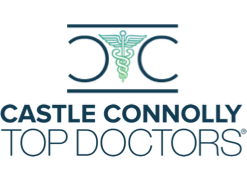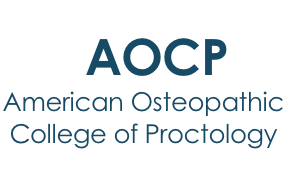Rectal (anal) bleeding diagnosis and treatment is offered at Proctology Institute Orange County (Huntingtin Beach). Bleeding from the anus commonly known as “rectal bleeding” is a common medical condition. The good news is that the vast majority of anal bleeding conditions that can cause rectal bleeding are entirely benign and do not offer any concern. The most common type of rectal bleeding occurs when we go to the toilet whereas the blood is often either on the toilet paper or occasionally it can be on the feces. Regular occurrences of rectal bleeding is not normally associated with anything too alarming however it does need to be checked out to be on the safe side.
However, should you have any of the following, it’s quite possible this could be attributed to hemorrhoids, in which case it would be worth seeking some advice:
- Ongoing rectal bleeding that last more than three or four days
- Bleeding that progressively gets worse
- Blood more frequently being on the toilet paper that is more than a few spots or on the feces or going into the toilet
- Often painless, rectal bleeding is associated with hemorrhoids and over straining
Rectal bleeding is characterized by the presence of blood in or around the stool and is a symptom that can arise from various conditions within the gastrointestinal tract. The severity and implications of rectal bleeding vary, making it essential to understand its potential causes, associated symptoms, diagnostic approaches, and treatment options.
Common Causes of Anal Rectal Bleeding:
Hemorrhoids: Hemorrhoids are the most frequent cause of rectal bleeding. Hemorrhoids often result from increased pressure due to straining during bowel movements, chronic constipation, or prolonged sitting. Symptoms include painless bright red blood during defecation, itching, and discomfort.
Anal Fissures: These are small tears in the lining of the anus, typically caused by passing hard or large stools. Anal fissures can lead to bleeding and severe pain during and after bowel movements.
Diverticular Disease: Diverticula are small pouches that can form in the colon’s lining. When these pouches become inflamed or infected—a condition known as diverticulitis—they can cause rectal bleeding, abdominal pain, and fever.
Inflammatory Bowel Disease (IBD): Conditions like ulcerative colitis and Crohn’s disease cause chronic inflammation of the gastrointestinal tract, leading to symptoms such as diarrhea, abdominal pain, and rectal bleeding.
Colorectal Polyps and Cancer: Polyps are benign growths that can develop on the inner wall of the colon and rectum. While often harmless, some polyps can progress to cancer over time. Colorectal cancer may present with rectal bleeding, changes in bowel habits, unexplained weight loss, and abdominal discomfort.
Symptoms Associated with Rectal Bleeding:
Blood Characteristics: Bright red blood typically indicates bleeding from the lower gastrointestinal tract, such as the rectum or anus, while darker or maroon-colored blood may suggest bleeding from higher up in the colon or small intestine.
Stool Appearance: Blood may be noticed on toilet paper, in the toilet bowl, or mixed with stool. Black, tarry stools (melena) can indicate bleeding from the upper gastrointestinal tract.
Accompanying Symptoms: Depending on the underlying cause, individuals may experience abdominal pain, diarrhea, constipation, fatigue, or weight loss.
Evaluation of Anal Bleeding:
A thorough medical history and physical examination at Proctology Institute Orange County (Huntingtin Beach) is crucial. Diagnostic procedures may include:
- Anoscopy or Sigmoidoscopy: These allow direct visualization of the rectum and lower colon to identify sources of bleeding.
- Colonoscopy: A comprehensive examination of the entire colon to detect polyps, tumors, or areas of inflammation.
- Imaging Studies: CT scans or angiography can help identify bleeding sources, especially in acute or severe cases.
Treatment Options:
Management depends on the underlying cause:
Hemorrhoids and Anal Fissures: Treatment often includes dietary modifications to increase fiber intake, over-the-counter creams, sitz baths, and, in some cases, minor surgical procedures.
Diverticular Disease: Mild cases may be managed with antibiotics and a liquid diet, while severe cases could require hospitalization or surgery.
Inflammatory Bowel Disease: Medications such as anti-inflammatory drugs, immune system suppressors, or biologics are commonly used.
Colorectal Polyps and Cancer: Polyps are usually removed during colonoscopy. Cancer treatment may involve surgery, chemotherapy, radiation therapy, or a combination.
Proctology Institute Orange County (Huntington Beach) office specializes in taking exceptional care of each patient from the initial consultation to the post-treatment period. The honor and privilege of caring for patients come with the responsibility and dedication of the proctologist’s staff to the utmost standard of excellence in patient care and final outcome.
Proctology Institute Orange County
18900 Beach Blvd., #101
Huntington Beach, CA 92648
(714) 467-2438
















